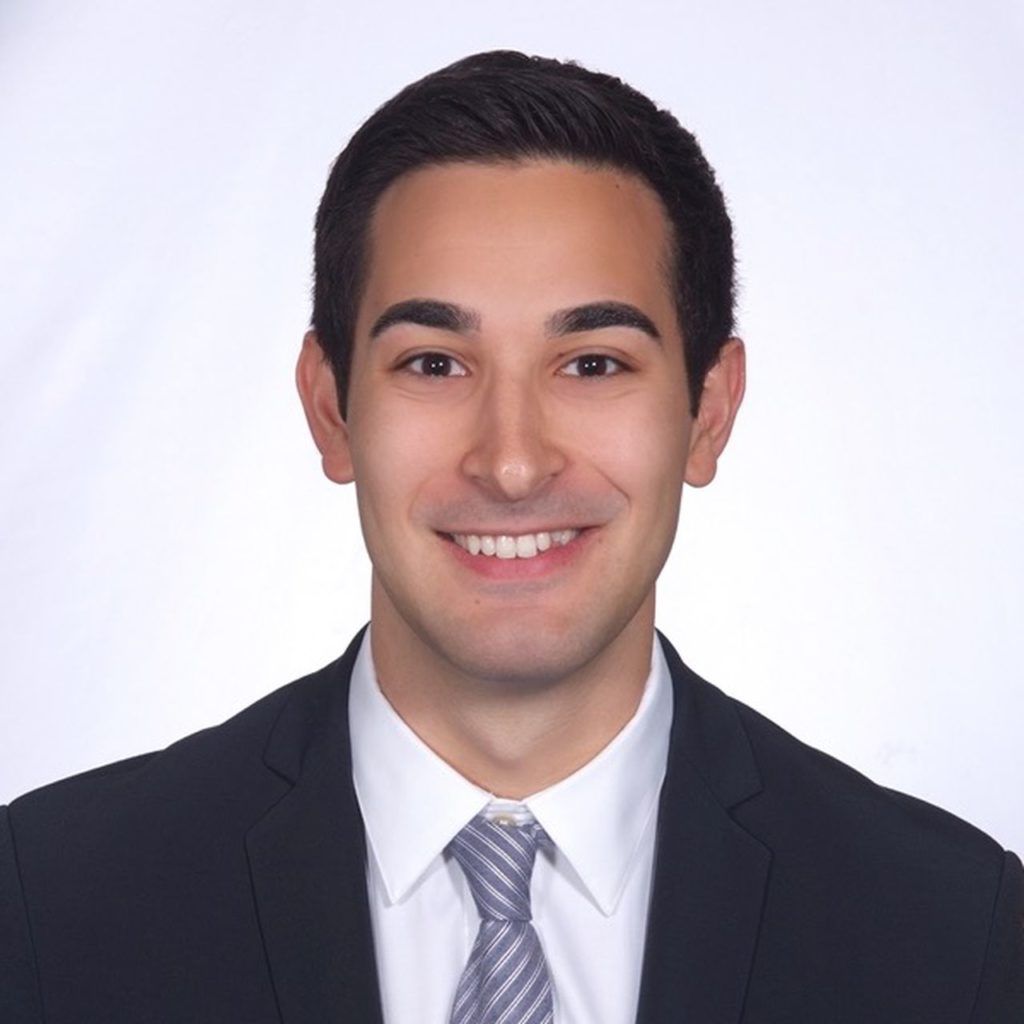Human Science Alumnus Graduates First in Medical School Class
July 17, 2020 – Dr. Nicholas Santaniello (NHS’16), who majored in human science, recently finished medical school at SUNY Downstate College of Medicine, where he graduated first in his class. (Read a story about this achievement.)
Santaniello graduated early to assist with the COVID-19 response in New York, and he is now pursuing his residency in pediatrics at the Children’s Hospital of Philadelphia (CHOP).

Question: Tell us about your education after Georgetown.
Santaniello: After Georgetown, I attended SUNY Downstate in Brooklyn, NY. It was great to be back in New York and closer to family, and I felt like I was coming back to serve a community I felt a part of. My time there was all that I could have hoped for.
From an academic standpoint, my clinical experiences at Downstate are what truly stood out. We, as students, really were made to feel like we were an integral part of the team and the main advocates for our patients. I thrived best in this environment where I felt pushed and accountable.
From a more holistic standpoint, I think Downstate’s community of students, faculty, staff, and patients are what make it a truly special place. Similar to Georgetown, it is a place where everyone is involved in the community in some way or form. That fostered a sense of camaraderie and pride amongst us all that has made for some very strong friendships, mentorships, and bonds.
Question: Were you happy to match at CHOP and how have you been enjoying your residency?
Santaniello: Match Day was a little different this year with social distancing, so I didn’t get to open an envelope alongside my peers. Nonetheless, when I opened my e-mail and saw that I matched at CHOP, a rush of gratitude and excitement ran through me. It was my first choice, and I felt like all of my hard work up until that point had come to fruition.
I had done an elective rotation at CHOP during my fourth year of medical school and saw firsthand how motivated, talented, and compassionate everyone in the hospital was. It made for a great learning environment, but more importantly, a great community. I think that has been the common theme of my higher education and now my early career – finding community in the environments where I live and work.
Question: How do you feel human science and Georgetown prepared you for medical school and beyond?
Santaniello: I think being a human science major made the transition to medical school much easier. Early on, it was difficult transitioning to the volume of material we were learning at such a fast pace. I felt that I had a strong foundation and work ethic that eased the burden.
Later, during my clinical rotations and now as a resident, I think the communication skills that human science helped me build have been the most useful. So much of medicine is communicating with patients and other providers, and I think human science and the NHS in general do a great job at giving us real experiences to develop those skills.
Question: Tell us a bit about being named valedictorian and how you felt about this honor.
Santaniello: Being named valedictorian was a real shock. I had been told I was to receive an award at awards day, but could not have guessed it would be that. My class is made up of so many strong and talented physicians who I learned so much from and relied on throughout the four years. I think I owe so much of it to them and also the great support system that I had in my family and close friends in New York.
Question: Can you describe your work on COVID-19 in New York?
Santaniello: As the pandemic started to take hold in New York, Downstate students – always quick to help and get involved – started a number of efforts to help the cause. The first that I joined was a family call line where family members could call in to receive updates on their loved ones since they were unable to visit.
I did this for a little over a month until a number of fourth year students were graduated early to help in the hospital. Half of us were placed in the ICUs taking care of the sickest patients with COVID-19. The other half were started in administrative roles to help facilitate hospital changes that needed to occur to better deal with the disease burden.
I was a part of this latter half, and I worked with the emergency department to develop, implement, and analyze new surge protocols to reduce the time patients spent in the emergency department and allow for surge teams to be implemented if and when new spikes occurred. It was a different experience from what I was used to doing, but it was important work that I think helped the hospital prepare for new challenges the pandemic will bring.
- Tagged
- COVID-19
